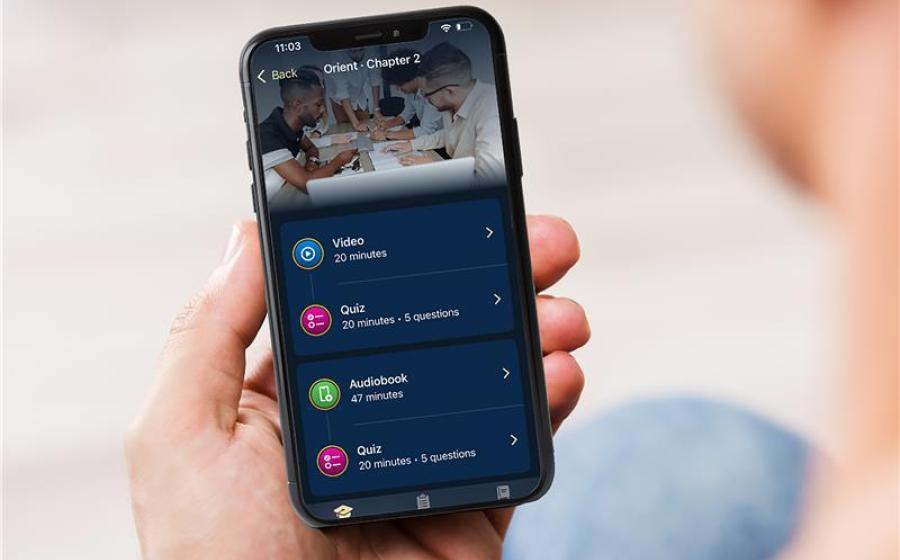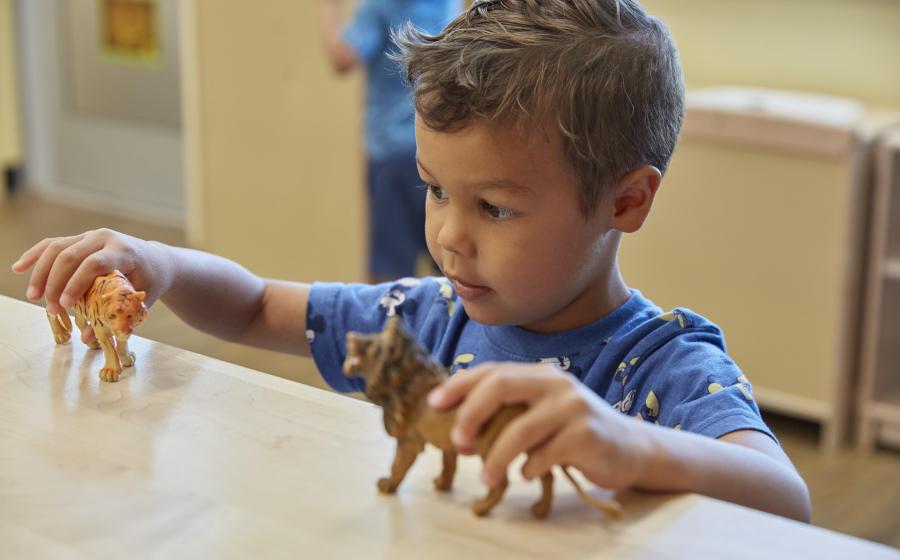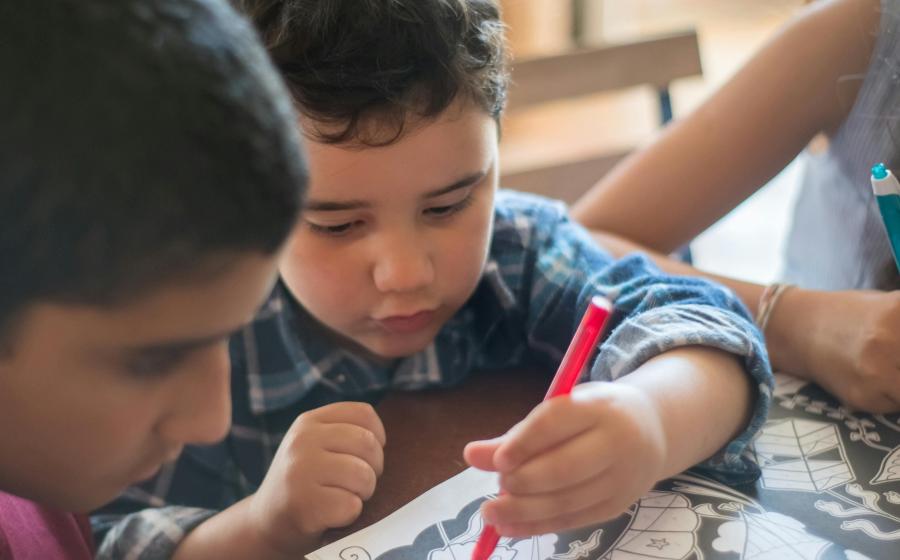Kindergarten Literacy: Gaps to Close, Still Ready to Grow
(Lexia) - As the infants and toddlers of the COVID-19 pandemic era enter kindergarten, many educators report unique challenges in this cohort, according to results of a survey conducted by Lexia, a leader in science of reading-based literacy solutions.
- As the infants and toddlers of the COVID-19 pandemic era enter kindergarten, many educators report unique challenges in this cohort, according to results of a survey conducted by Lexia, a leader in science of reading-based literacy solutions.
The survey included more than 200 educators from across the United States who worked with kindergarteners in the fall of 2025.
Overall, approximately three-quarters of the survey respondents said that this year’s kindergarten students were behind in early literacy skills compared to those of five years ago. Among those who described their students as behind, most cited phonemic awareness, the ability to hear and manipulate sounds in words, as the biggest gap. Others mentioned that children struggle with recognizing letters and writing their names.
In addition, almost 90% of teachers reported that children’s attention spans during reading-related activities are shorter than previous classes, and more than half said their students are less confident when asked to participate in reading activities.
However, social and emotional delays were even more striking than the academic delays. Eighty-two percent of educators said their students are less socially and emotionally ready for kindergarten than past years. Educators also reported that children are less practiced in sharing, self-regulation, and cooperation on arrival in kindergarten -- the first group experience many whose early childhoods were relatively isolated.
When young children lack opportunities to play with peers or listen to stories in groups, they lose not only vocabulary, but also the social-emotional skills of waiting one’s turn, following a sequence, and engaging with other minds.
Despite the pandemic-induced challenges, teachers also reported that these kindergarteners can adapt. They remain curious, empathetic, and eager to learn, but some may need scaffolds that reflect their unique early childhood experience.
The educators surveyed agreed that more engagement in reading at home is key to helping children catch up; reading aloud with children is an opportunity not only for bonding but also for promoting literacy.
The survey also asked educators which school-based interventions most help support today’s kindergarteners. Some takeaways for schools include using data-driven tools to pinpoint skill gaps in phonemic awareness, vocabulary, and comprehension, structuring small-group interventions that target those gaps with playful, multisensory practice, embedding social-emotional learning into literacy instruction, helping students persist through frustration and take pride in progress, and offering teachers professional development focused on understanding and responding to the unique needs of post-pandemic learners.
Overall, the educators surveyed expressed determination; they see the current group of kindergarteners as individuals with resilience, empathy, and curiosity who need consistent support, connection, and time in order to thrive.



 - Snowflakes, cozy blankets, and hot cocoa—images of winter often evoke a cheerful glow. Yet for many children, the season’s dimmer days and limited outdoor play can leave them feeling irritable or tired and can even affect their schoolwork.
- Snowflakes, cozy blankets, and hot cocoa—images of winter often evoke a cheerful glow. Yet for many children, the season’s dimmer days and limited outdoor play can leave them feeling irritable or tired and can even affect their schoolwork. 
 - A Michigan university unveils SOAR™, a new smartphone-based degree program that brings college within reach for busy adults — at half the cost.
- A Michigan university unveils SOAR™, a new smartphone-based degree program that brings college within reach for busy adults — at half the cost.
 - It’s testing season—and students are feeling the pressure. Between midterms, SATs, coursework, and activities, staying focused and confident can be a real challenge.
- It’s testing season—and students are feeling the pressure. Between midterms, SATs, coursework, and activities, staying focused and confident can be a real challenge. 
 - Los avances acelerados en inteligencia artificial (IA) y otras tecnologías emergentes están transformando rápidamente el mercado laboral, con aproximadamente
- Los avances acelerados en inteligencia artificial (IA) y otras tecnologías emergentes están transformando rápidamente el mercado laboral, con aproximadamente 
 - Swift advances in artificial intelligence (AI) and other emerging technologies are rapidly changing the labor market, with approximately
- Swift advances in artificial intelligence (AI) and other emerging technologies are rapidly changing the labor market, with approximately 
 - With the holidays just around the corner, many families find that the season of giving often turns into a season of overflowing toy bins. From stuffed animals to action figures, it doesn’t take long before every surface is covered with toys. But with a little planning and teamwork, families can declutter and make room for what matters most: time together.
- With the holidays just around the corner, many families find that the season of giving often turns into a season of overflowing toy bins. From stuffed animals to action figures, it doesn’t take long before every surface is covered with toys. But with a little planning and teamwork, families can declutter and make room for what matters most: time together.
 - Kicking a red rubber ball across the blacktop. Waving to a friend in a busy hallway. Trading snacks over a lunch table. These simple moments between children may seem small, but they matter more than we think.
- Kicking a red rubber ball across the blacktop. Waving to a friend in a busy hallway. Trading snacks over a lunch table. These simple moments between children may seem small, but they matter more than we think. 
 - One in four students in the United States today is Hispanic. Yet, despite this growing presence, Latino families are still underrepresented in many states' public and private school choice programs. In most cases, we don’t even know by how much.
- One in four students in the United States today is Hispanic. Yet, despite this growing presence, Latino families are still underrepresented in many states' public and private school choice programs. In most cases, we don’t even know by how much.